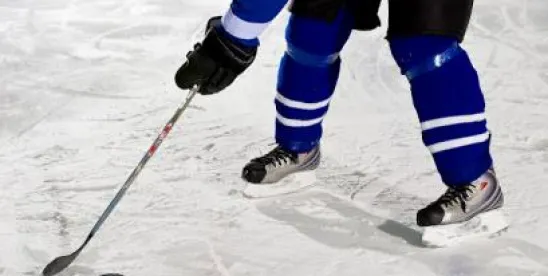Johnny Gaudreau, left wing for the Calgary Flames, is attempting to high-stick potential interlopers by locking up rights to his now-popularized nickname – Johnny Hockey – in a move that could mean a big payday down the road. Feel like you've heard this story before? You have. Gaudreau is just the latest in a long line of athletes, including LeBron James (King James), Robert Griffin III (RG3), Jeremy Lin (Linsanity), Chris Andersen (Birdman), Marshawn Lynch (Beast Mode) and Gaudreau's namesake, Johnny (Football) Manziel, trying to secure trademark protection for marketable nicknames before others cross-check them out of the market.
Both offensive and defensive motivations underlie the flurry to seek trademark protection. On the offensive side of the ice, holding trademarks gives the athlete greater bargaining power when negotiating an endorsement deal, as sponsors pay large sums for the exclusive rights to such marks. It is yet another way that athletes increasingly rely on brand management, beyond their athletic ability, as an additional source of income and yet another tool to extract the most value out of notoriously short and unpredictable careers.
The federal trademark filing fee, generally $275 - $375, is ultimately either a worthwhile investment or a de minimis sunk cost, considering the potential upside of a multimillion dollar merchandising campaign or endorsement deal. And in a system where anyone can acquire trademark rights as long as the mark is distinctive and the rights seeker is either the first to use the mark in commerce or the first to register the mark with the U.S. Patent and Trademark Office ("USPTO"), filing first or establishing first-in-use is vital. If someone elsebeats the athlete to it, he may be stuck watching the value of future endorsements go down in Flames, or forced to fight trademark trolls for rights to the marks. Worse, he may find himself in a face-off against the registrant in an opposition proceeding (and trust us, such proceeding is no slapstick comedy).
Nicknames present a slightly special case, however, as the Lanham Act (15 U.S.C. §1052(c)) prohibits the registration of marks that consist of a living individual's name or likeness without the individual's written consent. The USPTO seemingly treats nicknames as names for purposes of the Lanham Act, as it generally has refused to grant third parties such marks where it would falsely imply a connection to the athlete. The Zamboni race to file is therefore more crucial with respect to athletes' attempts to trademark attributes,catchphrases and poses (believe it or not, "Tebowing" is a registered mark).
On the defensive end, owning rights to one's marks allows an athlete to preempt any unwanted hooking of the mark, without relying on the ref to call interference. Indeed, though Gaudreau might one day score a Johnny Hockey line with a major apparel or sports equipment maker, for now the rookie merely seeks to prevent negative associations with the name. While there was little threat of the USPTO granting a zealous fan a trademark in the Johnny Hockey nickname, Gaudreau (assuming his application is approved) could thereafter pursue those abusing the mark in ways he would not have been able to otherwise.
Yet, rookie athletes like Gaudreau are encountering unexpected backlash. Manziel and Gaudreau both drew some jibes for acting too big for their shoulder pads, moving to trademark their nicknames before accomplishing anything substantial on a professional level. However, in the words of T. Swift, "Haters gonna hate." Indeed, a scattering of boos did not stop Manziel from once reaching number one in NFL jersey sales. Ultimately, any fan uproar will be fleeting and athletes like Gaudreau will be left not only with greater control over their names and likeness, but with the ability to sculpt the larger-than-life persona that is the modern-day superstar (and perhaps the added swagger needed to ignite the Flames to the Stanley Cup finals for the first time since 2004).







 />i
/>i

